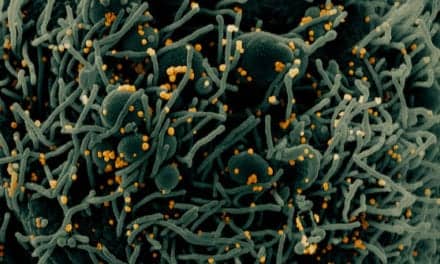Pregnant women with eating disorders are at an increased risk of complications and should undergo extended pregnancy screenings, according to a study from the Karolinska Institute.1 The researchers found that children born to mothers with eating disorders had a small head circumference and an increased risk of premature birth.
Eating disorders affect millions of people around the world, including many women of childbearing age. Still, to date, only a few small, limited studies have examined potential complications for children born to mothers with eating disorders. The Karolinska researchers took a more comprehensive view by studying all of the 1.2 million mothers who gave birth in Sweden between 2003 and 2014, of whom nearly 2,800 had anorexia, 1,400 had bulimia, and 3,400 had an unspecified eating disorder. They also looked at whether the risk varied between these different types of eating disorders and whether the mother had an active or previous eating disorder.
The study showed that all types of eating disorders increased the risk of premature birth, microcephaly (small head circumference for gestational age), and hyperemesis during pregnancy, a severe form of nausea and vomiting affecting the mother. The risk of anemia was twice as high for women with active anorexia or unspecified eating disorder as for mothers without eating disorders. Active anorexia was also associated with an increased risk of antepartum hemorrhage.
The majority of the risk increases were more pronounced during active disease, but women who hadn’t been treated for an eating disorder in more than a year before conception were also at higher risk of complications compared to mothers who had never been diagnosed with an eating disorder.
“Women with eating disorder should be recognized as a high-risk group among pregnant women,” says Ängla Mantel, MD, PhD, researcher at the Karolinska Institute and resident physician in obstetrics and gynecology at the Karolinska University Hospital. “From a clinical point of view, this means that care providers need to develop better routines to identify women with active or previous eating disorders and consider extended pregnancy screenings to meet their needs.”
The researchers speculate there could be several possible explanations for the associations. An inadequate diet with subsequent nutritional deficiencies may limit fetal growth. The stress hormone cortisol tends to be high in women with anorexia and bulimia and has previously been associated with microcephaly. Both stress and some nutritional deficiencies in the mother have previously been connected to premature birth. Vitamin and mineral deficiencies have also been associated with placental abruption, which could explain the increased risk of bleeding during pregnancy.
In the case of hyperemesis, the researchers noticed that part of the association to eating disorders disappeared when they adjusted for psychiatric conditions such as anxiety and depression. Other outcomes remained largely the same after adjustment for variables such as age, smoking, and birth year.
Reference
- Mantel Ä, Lindén Hirschberg A, Stephansson O. Association of maternal eating disorders with pregnancy and neonatal outcomes. JAMA Psychiatry. Epub ahead of print, November 20, 2019; doi: 10.1001/jamapsychiatry.2019.3664.
Featured image:
Photo © Andrey Popov, courtesy Dreamstime (ID 149385162).





